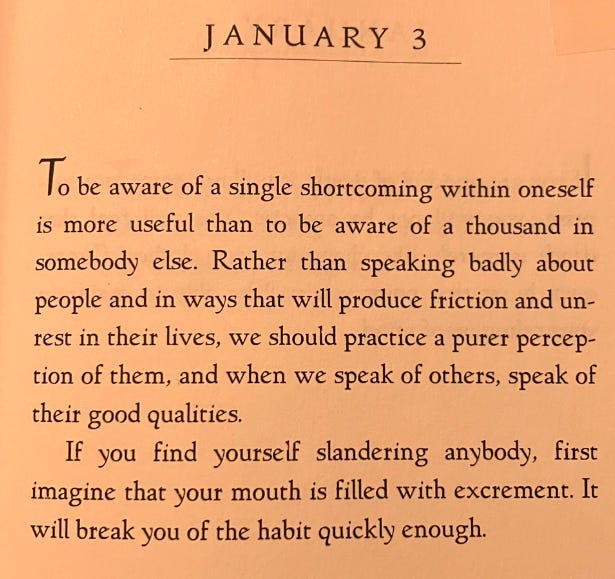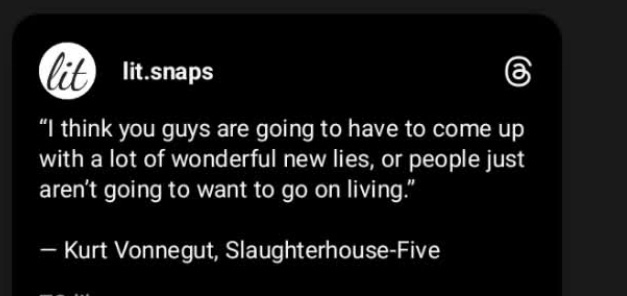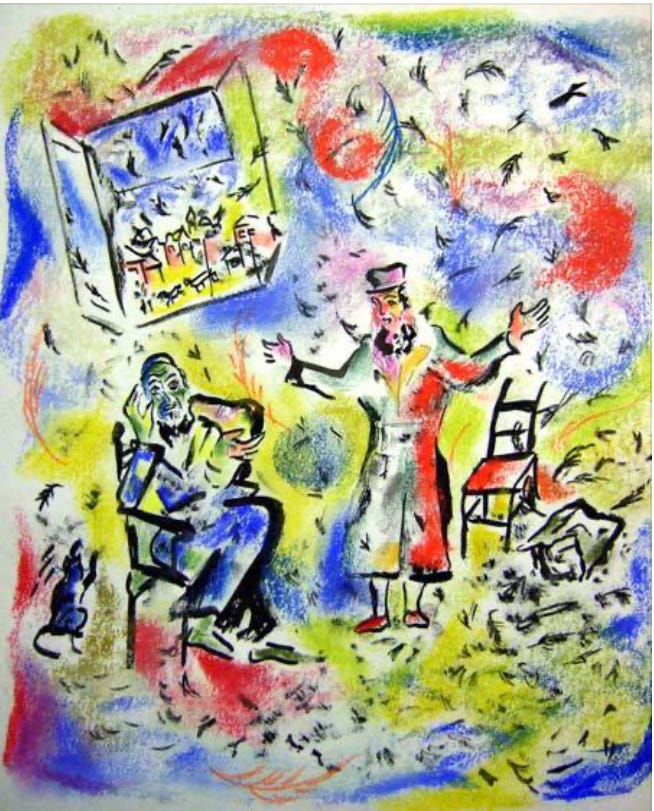Hudson Christie
My sorrow resists time. Slander and gossip are impervious to its arrows. Cerastes cerastes, the horned desert viper, waits, at night, in ambush.
Gossip does not wait in the night to attack. It masks its owner's evil feelings about themselves.
I know now that the more chances you give someone, the less respect they will have for you. Never let a person get comfortable disrespecting you:
January 3, The Path to Tranquility, HH Dalai Lama XIV
Slaughterhouse-Five, Kurt Vonnegut
Slander
by Jean Blewett
He does the devil's basest work, no less,
Who deals in calumnies—who throws the mire
On snowy robes whose hem he dare not press
His foul lips to. The pity of it! Liar,
Yet half believed by such as deem the good
Or evil but the outcome of a mood.
That one who, with the breath lent him by Heaven,
Speaks words that on some white soul do reflect,
Is lost to decency, and should be driven
Outside the pale of honest men's respect.
O slanderer, hell's imps must say of you:
"He does the work we are ashamed to do!"Slander, Jean Blewett
A Pillow Full of Feathers, by Shoshannah Brombacher
“In a small town somewhere in Eastern Europe lived a nice man with a nasty problem: he talked too much about other people. He could not help himself. Whenever he heard a story about somebody he knew, and sometimes about somebody he did not know, he just had to tell it to his friends……….
Since he was in business, he heard quite a lot of rumors and stories. He loved the attention he got, and was delighted when they laughed because of the way he told his “anecdotes,” which he sometimes embellished with little details he invented to make them funnier and juicier. Other than that, he was really a pleasant, goodhearted man.
He kind of knew it was wrong, but . . . it was too tempting, and in any case, most of what he told had really happened, didn’t it? Many of his stories were just innocent and entertaining, weren’t they?
One day he found out something really weird (but true) about another businessman in town. Of course he felt compelled to share what he knew with his colleagues…….
When the nice man with the nasty problem heard from the rabbi how devastated his colleague was, he felt truly sorry. He honestly had not considered it such a big deal to tell this story, because it was true; the rabbi could check it out if he wanted. The rabbi sighed.
“True, not true, that really makes no difference! You just cannot tell stories about people. This is all lashon hara, slander, and it’s like murder—you kill a person’s reputation.” He said a lot more, and the man who started the rumor now felt really bad and sorry. “What can I do to make it undone?” he sobbed. “I will do anything you say!”
The rabbi looked at him. “Do you have any feather pillows in your house?” “Rabbi, I am not poor; I have a whole bunch of them. But what do you want me to do, sell them?”
“No, just bring me one.”
The man was mystified, but he returned a bit later to the rabbi’s study with a nice fluffy pillow under his arm. The rabbi opened the window and handed him a knife. “Cut it open!”
“But Rabbi, here in your study? It will make a mess!”
“Do as I say!”
And the man cut the pillow. A cloud of feathers came out. They landed on the chairs and on the bookcase, on the clock, on the cat which jumped after them. They floated over the table and into the teacups, on the rabbi and on the man with the knife, and a lot of them flew out of the window in a big swirling, whirling trail.
The rabbi waited ten minutes. Then he ordered the man: “Now bring me back all the feathers, and stuff them back in your pillow. All of them, mind you. Not one may be missing!”
The man stared at the rabbi in disbelief. “That is impossible, Rabbi. The ones here are the rooms I might get, most of them, but the ones that flew out of the window are gone. Rabbi, I can’t do that, you know it!”
“Yes,” said the rabbi and nodded gravely, “that is how it is: once a rumor, a gossipy story, a ‘secret,’ leaves your mouth, you do not know where it ends up. It flies on the wings of the wind, and you can never get it back!”
He ordered the man to deeply apologize to the person about whom he had spread the rumor; that is difficult and painful, but it was the least he could do. He ordered him to apologize to the people to whom he had told the story, making them accomplices in the nasty lashon hara game, and he ordered him to diligently study the laws concerning lashon hara every day for a year, and then come back to him.
That is what the man did. Not only did he study Lashon Hara, but he also talked about the importance of guarding your tongue with his friends and colleagues. And in the end, he became a lovely man who overcame a nasty problem.”
Simon the Digger
“The timeless vagrant, a man out of time, and out of his time, but with a surplus of time, kept drilling into the can to pull out plastic bags with neat knots, half-filled coffee cups with cafe logos which he immediately gulped, a half-eaten carton of chicken wings, which Hop stared at, his spittle dripping.
He laid the knotted bags next to each other, carefully ensuring that each was parallel to the one next to it and aligned exactly east for morning prayers.
Simon remained oblivious to the passersby, Hop's drool, and Philip's outstretched hand, perfectly synchronized with the street chaos around him. Each taxi honk caused him to dive to the sidewalk, splayed flat, waiting for the vibration to pass over him.
A fire engine with “33” painted on it blared its horn at Sim and flashed its roof lights, which circled red and white. Simon jumped to his feet and waved at the occupants in blue with red braces, not stopping his waving, laughing, and drooling until he could not see them anymore. The truck raced up Lafayette past the red stone building with golden statues of Bard’s prankster jester, disappearing as it turned toward Mecca.
“Come back, come back soon,” he intoned softly.
Never waking from his mining reverie, he put his head back into the green dumpster to dig and smiled in all his filth as if he had the world and his gods by the balls. Then he stopped, looked up, and stared calmly at Philip, as if he had been injected with chemical stardust, and said, in a visceral, almost feral tone:
"Can't you see I'm digging for diamonds right now?"
"That, Simon," Philip added.
Curling his arms to his side, fists clenched, ‘"That,” what? Philip?" Simon asked, drilling his eyes into Philip like a snow leopard, readying to pounce on an innocent oryx perched on the side of a cliff.
"'Can't you see that I'm digging in the garbage right now? Isn't that what you meant to say? "Philip said and stopped, quiet.
Phillip let the silence pierce Simon's dream.
"Oh. Philip, you are always so righty—-what good do those dog treats do me if I can't dig for ‘em? I need to dig; leave me alone, Philip. I need to find ‘em. Your dog won’t dig. No tongue has he for gossip.”
The Duchess of Orange, ©Philippe du Col, 2024
©Philippe du Col, 2025









